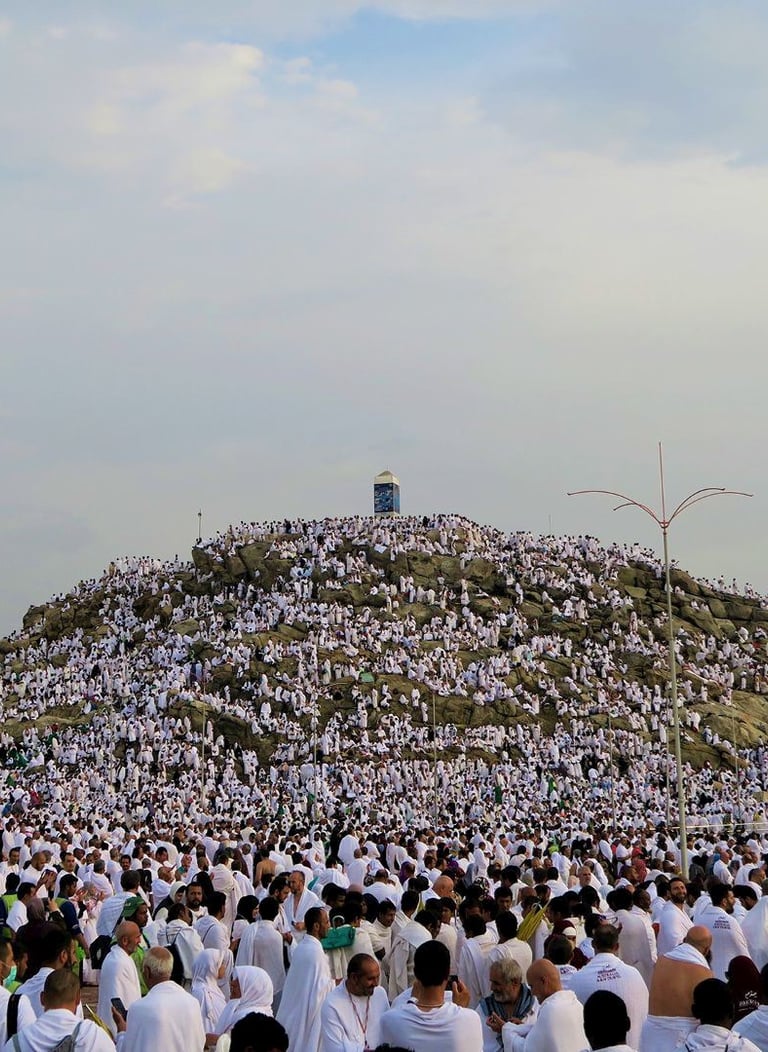Become AN ARAB
IT’S TIME TO
AUTHENTIC ARABIC LIVING
Explore the rich culture and history of the Arab world, its delicious cuisine and unique traditions.

DIVE INTO A LIFESTYLE
From the rise of the Arab tribes in the 7th century to the height of the Islamic Golden Age, Arab civilization has shaped the course of world history. Stretching from Andalusia to the Indian Ocean, the Arab world has been a cradle of scientific discovery, philosophical thought, and artistic achievement. Its cultural fabric is woven from ancient Semitic traditions, Islamic scholarship, and interactions with Persians, Byzantines, Berbers, and countless others across centuries of trade and conquest. With timeless architecture, vibrant souks, and a poetic language steeped in symbolism, the Arab world offers an enduring journey through one of humanity’s most influential civilizations.
Following the upheavals of colonialism and the birth of modern nation-states in the 20th century, Arab societies have undergone profound transformations. From political awakenings to technological innovation, from cultural renaissance to ongoing challenges, the Arab world continues to evolve—balancing deep-rooted heritage with contemporary aspirations. Today, Arabs stand at a crossroads of tradition and modernity, known for their hospitality, rich cuisine, linguistic artistry, and an enduring spirit of resilience.
We have created a selection of Arabic words you won’t find in any textbook or course—a set of expressions that reveal the unspoken rules, emotions, and cultural depth of everyday Arab life. Mastering these will help you sound like a native and truly understand the Arab world beyond grammar and vocabulary.


EXPAND YOUR KNOWLEDGE
If you are serious about learning Arabic, we recommend that you download one of our Complete Arabic Master Course which includes: Modern Standard Arabic as well as the Moroccan, Egyptian, Levantine and Gulf Dialects. Each Arabic Dialect Course is also available for purchase separately.
You will receive all the information available on the website in a convenient digital format to carry with you anywhere you go as well as additional contents: over 15000 Vocabulary Words and Phrases, in-depth explanations and exercises for all Grammar Rules, exclusive articles with Cultural Insights that you won't in any other textbook so you can amaze your Arab friends thanks to your knowledge of their country and history.
With the Arabic Master Courses you will also get hours of Audio Dialogues and Exercises to Practice your Arabic language skills. Start speaking today!


ABAYA
The عباية (ʿabāyah, cloak) is a traditional outer garment worn by many women in the Arab world, especially in the Gulf region. This flowing, robe-like piece of clothing is typically black and designed to cover the entire body except for the face, hands, and feet. The عباية (ʿabāyah) has deep cultural, religious, and social significance. For many, it is an expression of modesty, in accordance with Islamic principles of حجاب (ḥijāb, modest dress). However, beyond its religious implications, the عباية (ʿabāyah) has also evolved into a symbol of cultural identity and even fashion. In cities like Riyadh, Jeddah, and Dubai, modern versions of the عباية (ʿabāyah) come in various styles, fabrics, and embellishments, combining traditional values with contemporary aesthetics.
A classic عباية (ʿabāyah) is often paired with a شيلة (shīlah, headscarf) or a طرحة (ṭarḥah, light veil), both of which serve to cover the hair in accordance with حشمة (ḥishmah, decency/modesty). Some women may also wear a نقاب (niqāb, face veil), although this is a personal and regional choice rather than a universal practice. In many households, mothers pass down the practice of wearing the عباية (ʿabāyah) to their daughters, who may begin wearing it from a young age, especially as they approach بلوغ (bulūgh, puberty), marking a significant rite of passage in their lives.
While the traditional عباية (ʿabāyah) was plain and purely functional, modern designers have introduced stylish adaptations. Today, women can choose between open-front عبايات (ʿabāyāt, cloaks), embroidered designs, or ones made from luxurious materials like silk and chiffon. Some are even adorned with تطريز (taṭrīz, embroidery) or كريستالات (karīstālāt, crystals), catering to women who wish to express their personal style while maintaining their cultural and religious values.


ADHAN
The أذان (adhān) ('adhan – call to prayer) in Islam. It is not merely a sound or chant—it is a spiritual invitation that echoes from المآذن (al-maʾādhin) (minarets), reminding the faithful of their connection to الله (Allāh) (God). The adhan is recited five times a day, each time signaling the arrival of one of the الصلوات الخمس (al-ṣalawāt al-khams) (the five daily prayers). The words of the adhan are profound and rhythmic, beginning with الله أكبر (Allāhu ʾakbar) (God is the Greatest), repeated four times to center the listener's heart and mind on the divine. This is followed by أشهد أن لا إله إلا الله (ashhadu ʾan lā ʾilāha ʾillā Allāh) (I bear witness that there is no god but Allah) and أشهد أن محمدًا رسول الله (ashhadu ʾanna Muḥammadan rasūl Allāh) (I bear witness that Muhammad is the Messenger of Allah).
The adhan is more than just a call—it is a form of الذكر (al-dhikr) (remembrance), a way to keep the believer anchored in their faith throughout the day. The one who recites it is known as the مؤذن (muʾadhdhin) (caller to prayer), and his role is both spiritual and communal. In many communities, the adh
an brings a sense of unity and rhythm to life, punctuating the day with sacred moments of reflection and خشوع (khušūʿ) (humility in worship). The call continues with حي على الصلاة (ḥayya ʿala al-ṣalāh) (come to prayer) and حي على الفلاح (ḥayya ʿala al-falāḥ) (come to success)—reminding believers that success lies in turning to prayer, not in worldly pursuits alone.
In the early morning, a special phrase is added: الصلاة خير من النوم (al-ṣalāh khayrun min al-nawm) (prayer is better than sleep), calling the faithful to rise and begin the day with devotion. The beauty of the adhan lies in its ability to transcend time and place. Whether heard in a bustling city, a quiet village, or over a smartphone app, it evokes a shared spiritual consciousness among Muslims worldwide. It is both a personal reminder and a public declaration of faith, encapsulating the essence of العبادة (al-ʿibādah) (worship), الطاعة (al-ṭāʿah) (obedience), and التقوى (al-taqwā) (God-consciousness). Through the adhan, daily life is infused with purpose, rhythm, and a constant call to return to what truly matters.


AL-AQSA
Al-Aqsa is one of the holiest and most significant sites in Islam, deeply rooted in religious, historical, and spiritual importance. The Arabic name المسجد الأقصى (al-Masjid al-Aqṣā) ("the Farthest Mosque") refers to the sacred mosque located in القدس (al-Quds) (Jerusalem), a city revered in Islamic tradition. Al-Aqsa holds the distinction of being the أول القبلتين (awwal al-qiblatayn) (the first qibla), meaning it was the original direction of prayer for Muslims before it was changed to الكعبة (al-Kaʿbah) (the Kaaba) in Mecca.
The spiritual significance of Al-Aqsa is deeply tied to the miraculous event of الإسراء والمعراج (al-Isrāʾ wa al-Miʿrāj) (the Night Journey and Ascension), during which the Prophet Muhammad was transported from Mecca to Jerusalem and then ascended to the heavens. The journey began at المسجد الحرام (al-Masjid al-Ḥarām) (the Sacred Mosque) in Mecca and ended at Al-Aqsa, making it the only mosque besides the Kaaba directly mentioned by name in the Qur'an. This journey affirms the mosque's sacred status and its connection to divine revelation and prophecy.
Al-Aqsa is part of the broader الحرم القدسي الشريف (al-Ḥaram al-Qudsī al-Sharīf) (the Noble Sanctuary), which also includes the قبة الصخرة (Qubbat al-Ṣakhrah) (Dome of the Rock). The entire compound is regarded as a مكان مبارك (makān mubārak) (blessed place) and has been a center of worship, learning, and religious devotion for centuries. Many Prophets are believed to have prayed there, and it is considered a link between the Abrahamic faiths.
Throughout Islamic history, Al-Aqsa has been a symbol of الثبات (al-thabāt) (steadfastness), الكرامة (al-karāmah) (dignity), and الهوية الإسلامية (al-huwīyah al-islāmiyyah) (Islamic identity). The site has witnessed periods of both peace and conflict, and it remains a focal point of deep religious emotion and political tension today. For Muslims around the world, Al-Aqsa is not just a physical location but a representation of sacred heritage and spiritual longing.
The importance of Al-Aqsa continues to inspire acts of الرباط (al-ribāṭ) (spiritual guarding), especially by those who live near and protect the mosque. Many Muslims strive to visit and pray there, believing that one prayer at Al-Aqsa carries the reward of multiplied blessings, as indicated in Hadith literature. In summary, Al-Aqsa stands as a monument of faith, history, and unity — a beacon that connects past revelations with the present devotion of millions of believers.


AHL AL-KITAB
Ahl al-Kitab refers to the "People of the Book," a term used in Islam to describe followers of earlier monotheistic scriptures, namely Jews and Christians. The Arabic term أهل الكتاب (Ahl al-Kitāb) (People of the Book) reflects the recognition in Islam of the divine origins of the التوراة (al-Tawrāh) (Torah) and the الإنجيل (al-Injīl) (Gospel). These communities are acknowledged in the Qur’an as recipients of earlier revelations from الله (Allāh) (God), and Muslims are instructed to show respect and fairness toward them. According to Islamic tradition, these groups were granted divine guidance prior to the revelation of the القرآن (al-Qur’ān) (Qur’an) to Prophet Muhammad. The status of Ahl al-Kitab is unique in Islamic jurisprudence because they are granted certain rights and privileges not extended to other non-Muslims, particularly in matters of marriage and food.
For instance, Muslim men are permitted to marry women from Ahl al-Kitab, and it is lawful to eat meat prepared by them, provided it adheres to the guidelines of الذبيحة (al-dhabīḥah) (ritual slaughter). This shows a level of social and religious coexistence that is rooted in الرحمة (al-raḥmah) (mercy) and التسامح (al-tasāmuḥ) (tolerance). The Qur’an emphasizes that many among Ahl al-Kitab possess الإيمان (al-īmān) (faith) and perform acts of الخير (al-khayr) (goodness). However, it also critiques those who altered or misinterpreted their scriptures, encouraging a return to التوحيد (al-tawḥīd) (monotheism) and the final message delivered through Islam.
In medieval Islamic societies, Ahl al-Kitab often lived as ذميون (dhimmiyyūn) (protected non-Muslims) under the عهد الذمة (ʿahd al-dhimmah) (covenant of protection). In return for paying a tax called الجزية (al-jizyah) (poll tax), they were allowed to practice their religion, maintain places of worship, and govern personal matters according to their own laws. This arrangement, while hierarchical, facilitated peaceful coexistence and cultural exchange across centuries, particularly in regions like Andalusia and the Ottoman Empire.
In modern discussions, the concept of Ahl al-Kitab continues to play an important role in interfaith dialogue, emphasizing shared values like العدل (al-ʿadl) (justice), الصدق (al-ṣidq) (truthfulness), and الإحسان (al-iḥsān) (benevolence). While interpretations vary among scholars, the term Ahl al-Kitab remains a significant bridge between Muslims and other monotheistic faiths, encouraging mutual understanding rooted in respect, compassion, and shared belief in one God.


AKHIRA
Akhira refers to the concept of the afterlife in Islam — a central belief that profoundly shapes the worldview and actions of Muslims. The Arabic term الآخرة (al-Ākhirah) ("the Hereafter") represents the eternal life that follows our temporary existence in الدنيا (al-dunyā) (this world). In Islamic theology, every human being is destined to experience death and then resurrection on the يوم القيامة (Yawm al-Qiyāmah) (Day of Resurrection), when all individuals will be held accountable for their deeds. This day is also called يوم الحساب (Yawm al-Ḥisāb) (Day of Reckoning), a moment when one’s actions—both good and bad—will be weighed and judged by الله (Allāh) (God) with perfect justice and mercy.
Belief in the Akhira encourages Muslims to live righteously, uphold النية الصالحة (al-niyyah al-ṣāliḥah) (good intentions), and perform الأعمال الصالحة (al-aʿmāl al-ṣāliḥah) (righteous deeds). It reinforces the idea that life is a test and that the real reward or punishment will occur in the next life. Those who lead lives of faith, sincerity, and good conduct are promised الجنة (al-Jannah) (Paradise) — a place of eternal peace, beauty, and closeness to God. In contrast, those who reject faith or commit evil knowingly may face جهنم (Jahannam) (Hell) — a realm of punishment and regret. The Qur’an describes both destinations vividly, serving as powerful reminders of the consequences of one’s actions.
The journey after death begins in the grave, a phase known as البرزخ (al-Barzakh) (the barrier/interval), where the soul awaits the final resurrection. During this stage, a person’s initial experience—comfort or torment—can foreshadow their ultimate fate. On the Day of Judgment, each person will be shown their كتاب (kitāb) (book of deeds), and nothing will remain hidden from الحق (al-Ḥaqq) (The Truth — one of God’s names).
The concept of Akhira serves not only as a doctrine but also as a spiritual compass. It instills hope, responsibility, and a sense of purpose, reminding believers that life’s difficulties are temporary and that ultimate justice will prevail. Values such as الصدق (al-ṣidq) (truthfulness), الصبر (al-ṣabr) (patience), and التقوى (al-taqwā) (God-consciousness) gain profound meaning when viewed through the lens of the Akhira. In essence, belief in the Akhira elevates moral behavior and spiritual devotion, guiding Muslims to strive for a life that pleases God in preparation for an eternal abode beyond this world.


AL-FATIHA
Al-Fatiha, also known as “The Opening”, is the first chapter of the Qur’an and holds a central place in Islamic worship, theology, and daily life. In Arabic, it is called الفاتحة (al-Fātiḥah) ("The Opener"), because it opens both the Qur’an and the Muslim prayer, الصلاة (al-ṣalāh) (prayer). Consisting of seven verses, Al-Fatiha is recited in every unit of prayer and is considered the أم الكتاب (Umm al-Kitāb) (Mother of the Book) and السبع المثاني (al-Sabʿ al-Mathānī) (the Seven Oft-Repeated Verses).
This chapter is a concise yet profound summary of Islamic belief, emphasizing key concepts such as التوحيد (al-tawḥīd) (the oneness of God), الرحمة (al-raḥmah) (mercy), الهداية (al-hidāyah) (guidance), and العبادة (al-ʿibādah) (worship). It begins with praise:
بسم الله الرحمن الرحيم (Bism Allāh al-Raḥmān al-Raḥīm) ("In the name of Allah, the Most Merciful, the Most Compassionate"). This opening phrase is a reminder of God's mercy and compassion, two attributes that frame every act of worship.
The next verse,
الحمد لله رب العالمين (al-ḥamdu lillāhi rabb al-ʿālamīn) ("All praise is due to Allah, Lord of the worlds"), establishes that all gratitude belongs to الله (Allāh) (God), who nurtures and sustains all of creation. The following verses highlight God's justice and authority, especially in:
مالك يوم الدين (Māliki Yawm al-Dīn) ("Master of the Day of Judgment"), affirming His role as the ultimate judge on يوم القيامة (Yawm al-Qiyāmah) (the Day of Resurrection).
One of the most personal lines in the chapter is:
إياك نعبد وإياك نستعين (iyyāka naʿbudu wa iyyāka nastaʿīn) ("You alone we worship, and You alone we ask for help"). This statement encapsulates the spirit of الإخلاص (al-ikhlāṣ) (sincerity) and التوكل (al-tawakkul) (trust in God).
The chapter concludes with a heartfelt plea:
اهدنا الصراط المستقيم (ihdinā al-ṣirāṭ al-mustaqīm) ("Guide us to the straight path"), followed by a distinction between those who have received guidance and those who have gone astray:
صراط الذين أنعمت عليهم غير المغضوب عليهم ولا الضالين (ṣirāṭ al-ladhīna anʿamta ʿalayhim ghayri al-maghḍūbi ʿalayhim walā al-ḍāllīn) ("The path of those You have favored—not those who have earned Your anger, nor those who have gone astray").
Al-Fatiha is not just a ritual recitation—it is a direct conversation between the worshiper and God, filled with devotion, humility, and longing for divine guidance. It teaches Muslims to begin every act with remembrance of God, seek His mercy, and remain steadfast on the path of truth and righteousness.


ALHAMDULILLAH
Alhamdulillah is one of the most frequently used and deeply meaningful expressions in Islam. In Arabic, it is written as الحمد لله (al-ḥamdu lillāh) and translates as "All praise is due to Allah." This phrase combines gratitude, praise, and recognition of God's ultimate authority and benevolence. It is composed of three parts: الحمد (al-ḥamd) (praise), لـ (li) (to/for), and الله (Allāh) (God).
Muslims use alhamdulillah in a wide range of situations: when something good happens, to express satisfaction, after sneezing, or even simply as a general reminder of God's countless blessings. It reflects an attitude of الرضا (al-riḍā) (contentment) and الشكر (al-shukr) (gratitude), acknowledging that all forms of good ultimately come from God, whether they are material, emotional, or spiritual.
The phrase appears at the beginning of الفاتحة (al-Fātiḥah) (The Opening) — the first chapter of the Qur’an — in the verse:
الحمد لله رب العالمين (al-ḥamdu lillāhi rabb al-ʿālamīn) ("All praise is due to Allah, Lord of the worlds"). This verse serves as a foundational reminder that recognizing God’s grace is the beginning of all sincere worship. Saying alhamdulillah is an act of الذكر (al-dhikr) (remembrance) and strengthens the believer’s connection with God.
In daily life, alhamdulillah is also a response of humility. When asked how one is doing, a typical Muslim reply might be, “Alhamdulillah,” even if life is difficult. This is because the phrase is not only reserved for happy times; it also reflects patience and trust in God during hardships. This practice is closely tied to the Islamic values of الصبر (al-ṣabr) (patience) and التوكل (al-tawakkul) (reliance on God).
Furthermore, expressing gratitude through alhamdulillah aligns with a core teaching in Islam: that being thankful leads to increased blessings, as mentioned in the Qur’an:
لَئِن شَكَرْتُمْ لَأَزِيدَنَّكُمْ (laʾin shakartum la-azīdannakum) ("If you are grateful, I will surely increase you") — [Qur'an 14:7].


ALLAH
Allah is the Arabic word for God and the central focus of Islamic belief, worship, and devotion. In Arabic, it is written as الله (Allāh), and it denotes the one, unique, and incomparable God who is the Creator, Sustainer, and Ruler of the universe. Unlike other terms for deity that may appear in various languages, Allāh is a proper noun — it has no plural and no gender — emphasizing the oneness and singularity of God, a concept known in Islam as التوحيد (al-tawḥīd) (monotheism).
The name Allāh is not exclusive to Muslims; it is also used by Arabic-speaking Jews and Christians when referring to God. However, in Islam, Allāh is the supreme being who revealed the Qur’an to the Prophet Muhammad and who is described through أسماء الله الحسنى (asmāʾ Allāh al-ḥusnā) (the Most Beautiful Names of Allah) — ninety-nine names that reflect His attributes, such as الرحمن (al-Raḥmān) (The Most Merciful), الغفور (al-Ghafūr) (The Most Forgiving), and العدل (al-ʿAdl) (The Just).
Muslims believe that Allāh is beyond human comprehension and form, yet He is closer to the human being than their own الوريد (al-warīd) (jugular vein), as stated in the Qur’an. He is both الخالق (al-Khāliq) (The Creator) and الرازق (al-Rāziq) (The Provider). He sees all, hears all, and knows all — possessing العلم الكامل (al-ʿilm al-kāmil) (perfect knowledge).
Worship in Islam is directed solely to Allāh, and associating partners with Him is considered الشرك (al-shirk) (polytheism), the gravest sin in Islam. Muslims declare their faith through the الشهادة (al-shahādah) (testimony of faith):
أشهد أن لا إله إلا الله (ashhadu an lā ilāha illā Allāh) ("I bear witness that there is no god but Allah").
This absolute monotheism shapes every aspect of a Muslim's life, from daily prayers (الصلاة al-ṣalāh) to acts of charity (الزكاة al-zakāh) and moral conduct. Constant remembrance of Allāh, known as الذكر (al-dhikr) (remembrance), nurtures spiritual awareness, humility, and gratitude.
In summary, Allāh is not just a name — it is the embodiment of all divine qualities in Islam. He is الرحيم (al-Raḥīm) (The Compassionate) to His creation, الحكيم (al-Ḥakīm) (The Wise) in His decrees, and الواحد (al-Wāḥid) (The One and Only) in His essence. The belief in Allāh is the foundation upon which all other aspects of Islam rest.


ARAFAT
ʿArafat is one of the most sacred places and significant days in Islam, deeply connected to the annual الحج (al-ḥajj) (pilgrimage). In Arabic, it is written as عرفات (ʿArafāt), and it refers both to a physical location and to the ninth day of the Islamic month of ذو الحجة (Dhū al-Ḥijjah). Located just outside of مكة (Makkah) (Mecca), the plain of ʿArafat is where millions of pilgrims gather each year for the pinnacle of the Hajj ritual.
The Day of ʿArafat, known as يوم عرفة (Yawm ʿArafah) (the Day of ʿArafah), is considered the most important day of the pilgrimage. Standing at ʿArafat, called الوقوف بعرفة (al-wuqūf bi-ʿArafah) (the standing at ʿArafat), is an essential pillar of Hajj — so crucial that the Prophet Muhammad said:
"الحج عرفة (al-ḥajj ʿArafah)" ("Hajj is [the day of] ʿArafah").
Missing this standing invalidates the entire pilgrimage.
On this day, pilgrims gather from noon until sunset in a state of خشوع (khuṣūʿ) (humility) and تضرع (taḍarruʿ) (supplication), seeking مغفرة (maghfirah) (forgiveness), mercy, and closeness to الله (Allāh) (God). The plain of ʿArafat is believed to be the site where Prophet إبراهيم (Ibrāhīm) (Abraham) stood in devotion, and where the Prophet Muhammad delivered his خطبة الوداع (khuṭbat al-wadāʿ) (Farewell Sermon) during his final Hajj.
For Muslims not performing Hajj, Yawm ʿArafah is also significant. It is a day of fasting, and according to Hadith, fasting on this day expiates the sins of the previous year and the coming one. This act reflects التوبة (al-tawbah) (repentance) and الإخلاص (al-ikhlāṣ) (sincerity), as believers strive to renew their connection with God.
The atmosphere on ʿArafat is one of powerful unity and spiritual intensity. Pilgrims wear الإحرام (al-iḥrām) (the sacred pilgrimage garments), erasing social and economic differences, and stand together in a sea of white, embodying the equality of all believers before God. The landscape becomes a symbol of اليوم الآخر (al-yawm al-ākhir) (the Day of Judgment), where all souls will gather for الحساب (al-ḥisāb) (reckoning).
In summary, ʿArafat represents mercy, reflection, and transformation. Whether on the plain during Hajj or fasting at home, Muslims around the world mark this day with دعاء (duʿāʾ) (supplication), ذكر (dhikr) (remembrance), and deep yearning for divine acceptance. It is a day when hearts turn sincerely toward Allāh, seeking not only forgiveness, but renewal of faith and purpose.


EXPAND YOUR KNOWLEDGE
If you are serious about learning Arabic, we recommend that you download one of our Complete Arabic Master Course which includes: Modern Standard Arabic as well as the Moroccan, Egyptian, Levantine and Gulf Dialects. Each Arabic Dialect Course is also available for purchase separately.
You will receive all the information available on the website in a convenient digital format to carry with you anywhere you go as well as additional contents: over 15000 Vocabulary Words and Phrases, in-depth explanations and exercises for all Grammar Rules, exclusive articles with Cultural Insights that you won't in any other textbook so you can amaze your Arab friends thanks to your knowledge of their country and history.
With the Arabic Master Courses you will also get hours of Audio Dialogues and Exercises to Practice your Arabic language skills. Start speaking today!






